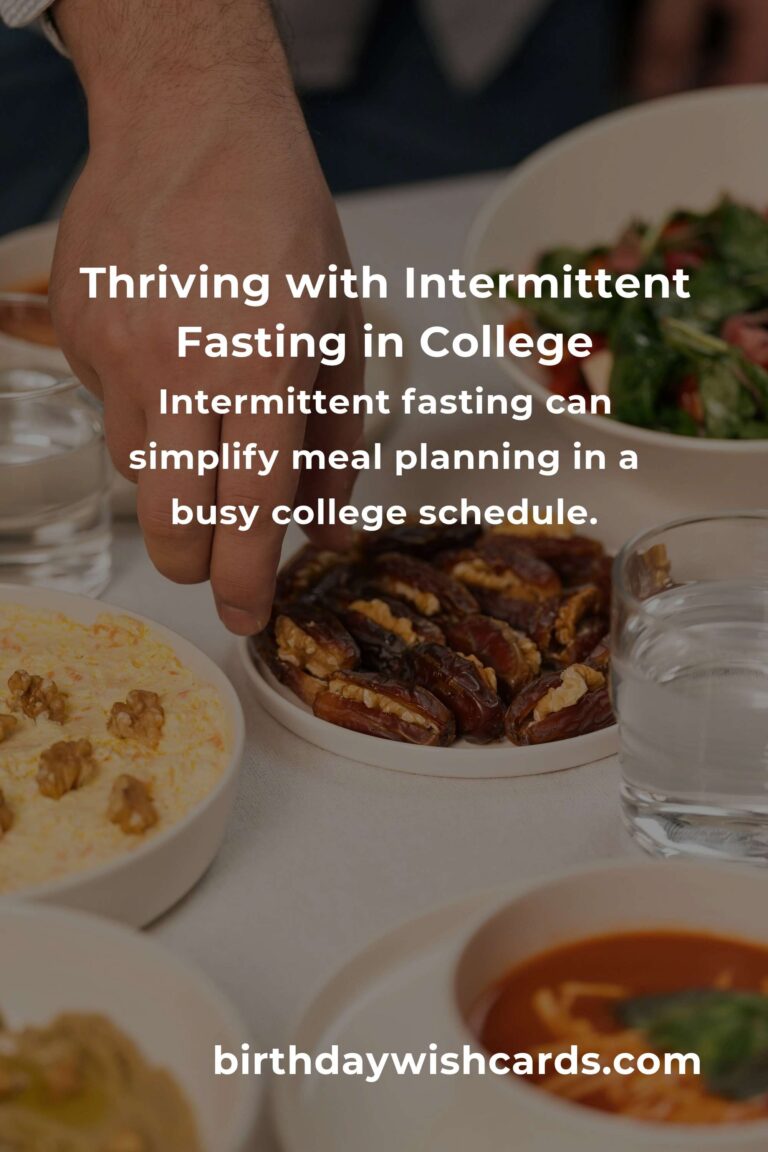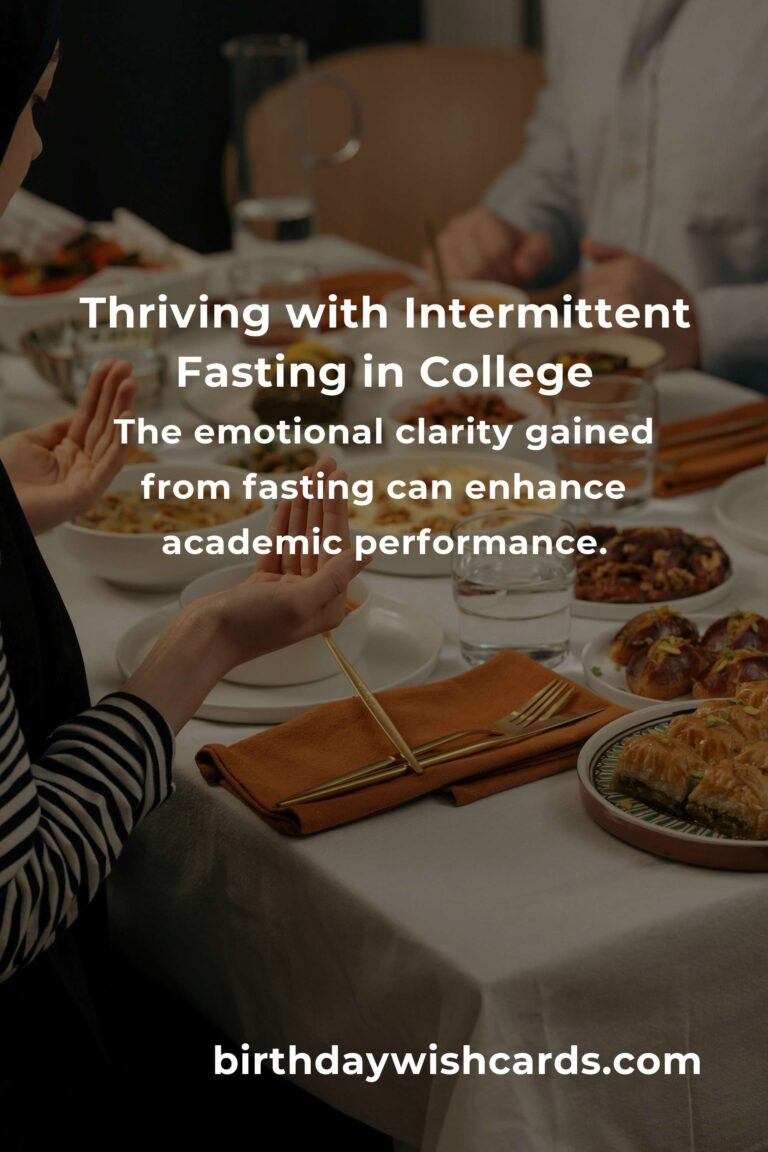
College life is a whirlwind of lectures, study sessions, social gatherings, and those late-night cramming marathons. Amidst this busy schedule, maintaining a healthy lifestyle can often feel like an uphill battle. Enter intermittent fasting—a flexible and increasingly popular approach to eating that can fit seamlessly into a college student’s hectic life.
Understanding Intermittent Fasting
At its core, intermittent fasting (IF) is an eating pattern that cycles between periods of fasting and eating. Unlike traditional diets that focus on what you eat, IF is more concerned with when you eat. This method can help with weight management, improve metabolic health, and provide a clearer, more focused mind—something every college student could use.
Why Intermittent Fasting Resonates with Students
Imagine not having to worry about squeezing three full meals into a day already packed with classes and study sessions. For many students, IF offers an appealing simplicity. By limiting the eating window, you can reduce the time spent on meal prep and focus on what truly matters—your education and personal growth.
Moreover, intermittent fasting can help students develop a healthier relationship with food. Instead of mindlessly snacking during late-night study sessions, students learn to listen to their body’s hunger cues, fostering mindful eating habits that can last a lifetime.
Getting Started with Intermittent Fasting
If you’re considering intermittent fasting, start by choosing a fasting method that aligns with your lifestyle. The 16/8 method, where you fast for 16 hours and eat during an 8-hour window, is popular among beginners. For example, you might choose to eat between 12 PM and 8 PM, skipping breakfast and avoiding late-night snacking.
It’s important to approach fasting with flexibility and kindness. Some days you might feel more hungry or have social events that fall outside your eating window. That’s okay. Intermittent fasting is not about perfection but about finding a balance that works for you.
Navigating Challenges: For the Love of Coffee and Social Life
One concern many students have is how fasting will affect their caffeine consumption. The good news? Black coffee and tea are generally allowed during fasting periods, giving you that much-needed energy boost to tackle morning classes.
Social life can also pose challenges. Dinner with friends or late-night pizza runs might clash with your eating window. The key is flexibility; it’s okay to occasionally adjust your fasting schedule to accommodate important social interactions. Remember, fasting is a tool, not a constraint.
Listening to Your Body
Intermittent fasting is not a one-size-fits-all solution. Pay attention to how your body responds, and adjust as needed. If you’re feeling overly fatigued, perhaps your eating window needs to include more nutritious, energy-boosting foods. The journey to finding your balance is just as important as the destination.
The Emotional Benefits of Intermittent Fasting
Beyond the physical health benefits, intermittent fasting can bring emotional clarity and a sense of control. In the often chaotic world of college, having a structured approach to eating can provide a comforting routine. The discipline of fasting can spill over into other areas of life, improving time management and study habits.
Resources and Support
Starting something new can be daunting, but you’re not alone. There are numerous online communities and resources where students share their experiences with intermittent fasting. These can provide support and motivation, helping you stay committed to your health goals.
Whether you are looking to manage your weight, gain more energy, or simply find a structured eating routine, intermittent fasting can be a beneficial tool. Remember, the ultimate goal is to thrive in college—academically, socially, and health-wise. Intermittent fasting is just one path to get there.
Intermittent fasting can simplify meal planning in a busy college schedule.
Starting with the 16/8 method can help ease the transition into fasting.
Flexibility in fasting schedules is important to accommodate social life.
Listening to your body’s signals is crucial for a successful fasting experience.
The emotional clarity gained from fasting can enhance academic performance.
#IntermittentFasting #CollegeLife #HealthyStudent #MindfulEating #StudentWellness

